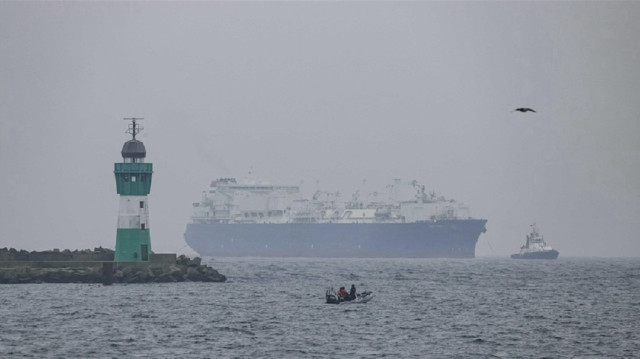
Finnish authorities investigate Eagle S, Cook Islands-registered tanker believed to be linked to Russia's 'shadow fleet'
Finland will begin a port state control inspection of the tanker Eagle S, following suspected Baltic Sea cable sabotage last week, the Finnish Transport and Communications Agency (Traficom) said on Thursday.
"The inspection of the Eagle S vessel is a routine measure, but it can take several days. We will conduct the inspection in a way that does not disrupt the police operation and investigation," Sanna Sonninen, director of Maritime Affairs at Traficom, said in a statement.
Sonninen noted that the inspection process would consider the crew's workload and that the findings would be shared upon its completion.
“The risk classification received by the Eagle S vessel requires Traficom to carry out a more detailed port state inspection of the vessel. The more detailed inspection also includes various equipment tests and safety exercises,” she explained.
Traficom also highlighted the consequences of non-compliance, saying: "If a port state control determines that a ship does not comply in any way with the provisions and regulations on ship safety or with international agreements binding on the ship and Finland, the ship may be required to correct the deficiencies and shortcomings detected."
"Traficom may stop the operation of the vessel until the deficiency or defect has been corrected," the agency further added.
In Finland, authorities have identified an oil tanker, Eagle S, as a vessel of interest in the investigation. The tanker, registered under the Cook Islands flag and believed to be part of Russia's "shadow fleet," departed from a Russian port and was en route to Egypt's Port Said at the time of the incident.
- Baltic Sea incidents
The Baltic Sea has been the scene of several high-profile infrastructure incidents since the onset of Russia's war on Ukraine in February 2022, which heightened tensions in the region.
The latest incident follows the October shutdown of a Finnish-Estonian undersea gas pipeline after the anchor of a Chinese cargo ship reportedly damaged it.
Last month, two telecommunications cables linking Sweden and Denmark were severed. Authorities suspect the Chinese vessel Yi Peng 3, which sailed over the cables, but China denied Sweden's request to investigate the ship.
The Arelion submarine cable, which connects the Swedish island of Gotland to Lithuania, and the C-Lion 1 submarine communications cable that runs between Finland's capital Helsinki and Germany's Rostock city were also damaged in mid-November near Sweden's territorial waters.
European officials have suggested that sabotage could be behind the recent disruptions, potentially linked to Russia's ongoing conflict in Ukraine. But the Kremlin has rejected the claims, calling them “absurd” and “laughable.”
The September 2022 explosions that ruptured the Nord Stream pipelines carrying Russian gas to Europe remain unresolved, underscoring the region's vulnerability to undersea attacks on key infrastructure.
Authorities across the Baltic region continue to investigate these incidents amid heightened vigilance as geopolitical tensions show no sign of abating.

